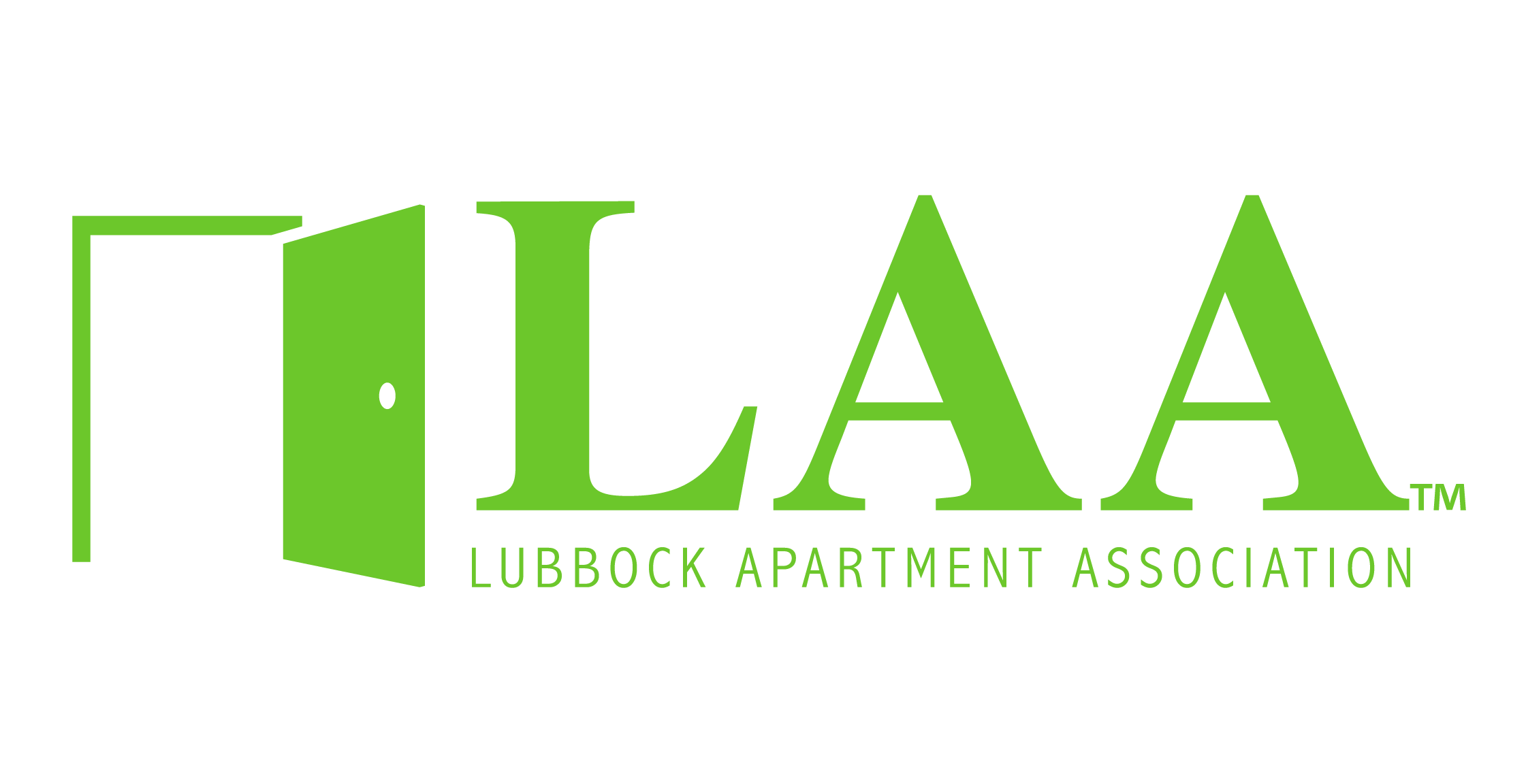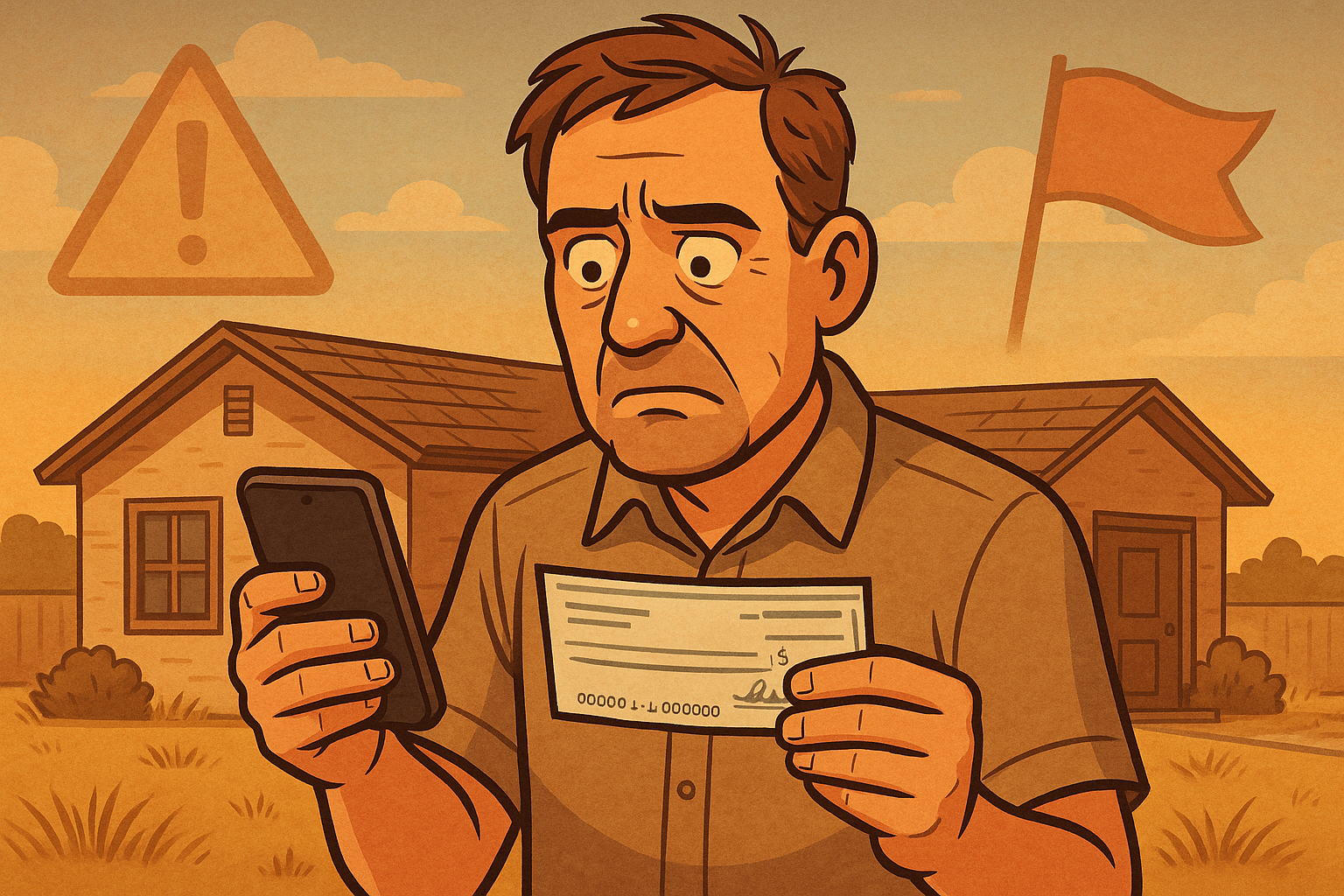Overpayment Rental Scam: How a Lubbock Owner Caught It in Time
The Check That Almost Cost a Lubbock Property Owner Everything
Here's what happened: One of our longtime LAA members—a guy who's been renting properties for decades—received something unusual in the mail: a company check from someone he'd never heard from. No prior contact, no rental application, just a check.
Then the communications started flooding in. The sender claimed to be a parent wanting to secure housing for their college-bound kid. They'd already sent payment (that mysterious check) for a full year upfront. But now they needed our member to use some of that money to buy furniture for the student. Send back the extra. Pay their moving company. The demands came fast and urgent.
That's when the red flags started waving. In all his years as a property owner, no one had ever sent payment before even talking to him. The sudden urgency after the check arrived felt wrong. So instead of depositing it, he took it to his bank to investigate.
The bank's verdict? The accounts were closed. The check was worthless.
If he'd deposited that check and sent money back as demanded, he'd have been out thousands when it bounced. The scammers were counting on that gap between receiving the check and the pressure tactics—hoping he'd deposit it without thinking, then feel obligated to "refund" money that was never real.
This wasn't some naive first-timer. This was an experienced property owner who nearly got taken by what's called an overpayment scam. And it's happening more than you think.
The Numbers Don't Lie
Rental scam cases jumped 64% last year, according to the FBI. More than 10,000 rental scam complaints were filed in 2023, with losses topping $145 million. Nearly half of all renters are "very concerned" about falling victim.
Here in Lubbock, with our steady stream of Tech students and their families, we're prime targets. Scammers know parents are anxious to secure housing. They know property owners want reliable, long-term tenants. They use that against us.
How the Scam Actually Works
The mechanics are simple once you see them:
-
The Hook: Someone contacts you about renting. They're eager, polite, have a good story. Often claim to be out of town or overseas. Sometimes—like with our member—they skip straight to sending a check.
-
The Overpayment: They send a check for more than what's owed. Could be a "mistake" or they'll ask you to use the extra for movers, furniture, whatever.
-
The Urgency: They need you to send that extra money back fast. Or pay their moving company. Always some pressing reason.
-
The Sting: Their check bounces—sometimes weeks later. Your bank takes back every penny. But the money you sent? That's gone forever.
The Banking Trap Most Property Owners Don't Understand
Here's the killer detail: When you deposit a check, your bank makes those funds "available" quickly—often the next day. Federal law requires it. You see the money in your account and think you're good.
You're not.
"Available" doesn't mean "cleared." Banks make funds available quickly based on the expectation the check will clear, but they retain the right to reverse it if the check is fraudulent. The bank is essentially floating you a loan while they verify the check with the other bank. That verification can take weeks.
By the time the check bounces, you've already sent money to the scammer. And guess who's on the hook? Not the bank. You.
Red Flags That Should Stop You Cold
Watch for these warning signs:
The Cold Check: Payment arriving before any conversation? That's not how real rentals work. No legitimate tenant sends money before even talking to you.
The Distance Game: They can't meet in person. Always traveling, relocating for work, sending their "agent." Real tenants want to see what they're renting.
The Rush Job: Everything's urgent. They need to move immediately. Can't wait for standard procedures. Pressure is the scammer's friend.
The Overpayment: This is the big one. No legitimate tenant accidentally overpays by hundreds or thousands of dollars. And no legitimate transaction requires you to send money back.
The Payment Shuffle: They want refunds via wire transfer, gift cards, Venmo, Zelle—anything untraceable. Real business uses real payment methods.
Your Protection Playbook
Rule 1: Never Accept Overpayments If someone sends more than what's owed, return the check. Don't deposit it. Don't "just take what you need." Send it back.
Rule 2: Wait for Checks to Actually Clear Call the issuing bank directly (using a number you find yourself, not one on the check). Ask if the check has fully cleared. This isn't the same as seeing funds in your account.
Rule 3: Meet People or See Them Can't meet in person? Insist on a video call. A real tenant has no problem showing their face.
Rule 4: Trust Your Gut That uneasy feeling? Listen to it. Better to lose a prospect than lose your shirt.
When In Doubt, Call Someone
Before you send money to anyone—especially if something feels off—call:
- Another property owner you trust
- Your banker (they've seen every scam)
- The LAA office (we're here to help)
Sometimes all it takes is explaining the situation out loud to realize something's not right.
If You've Been Targeted
Don't be embarrassed. Report it:
- Your bank (immediately)
- FTC at ReportFraud.ftc.gov
- FBI at ic3.gov
- Lubbock Police Department
Even if you didn't lose money, reporting helps track these scammers and warns others.
The Bottom Line
Scammers are betting you'll see dollar signs and stop thinking clearly. They're counting on you not understanding how banking really works. They're hoping you'll be too polite to push back or too embarrassed to ask for help.
Don't give them that satisfaction.
That long-time LAA member who almost got scammed? He's not embarrassed about his close call. He's telling everyone who'll listen. Because sharing these stories—the close calls and the losses—is how we protect each other.
Stay sharp, trust your instincts, and remember: legitimate tenants don't overpay.
Questions about a rental situation? Not sure if something's legitimate? Call the LAA office. We've seen it all, and we're here to help.
1. What is an overpayment scam in rentals?
It’s when a fake tenant sends a check for more than the rent, then asks you to send the extra money back or use it to pay a third party. The check later bounces, and you're stuck covering the loss.
2. What are the red flags of an overpayment scam?
Watch for:
-
Offers to overpay
-
Urgent or rushed requests
-
Refusal to meet or view the property
-
Requests for untraceable refunds (e.g., wire, gift cards)
-
Deals that seem too good to be true
3. What’s the difference between “available” and “cleared” funds?
“Available” means your bank lets you use the money temporarily. “Cleared” means the check is fully verified and can’t bounce. Scammers exploit the delay between the two.
4. What should I do if I get a check for too much?
Don’t deposit it. Return or void the check. Never send money back unless the check has fully cleared—confirm with the issuing bank using their official contact info.
5. Where can I report a suspected rental scam?
Report it to:
-
Your bank
-
FTC: ReportFraud.ftc.gov
-
FBI: ic3.gov
-
Lubbock Police
-
USPIS (if mailed): uspis.gov
-
The website where the listing appeared

